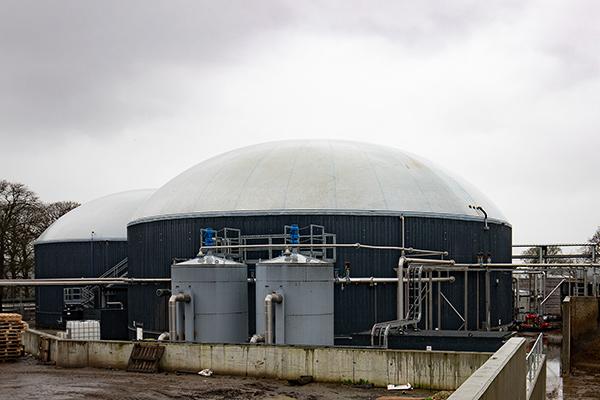This biogas plant in the south of England was built near Chichester in 2017. It generates electricity with a rated power of 1.8 megawatts using two Jenbacher CHP engines, and also produces an equivalent amount of thermal energy. At this plant, the thermal energy is converted into steam which is used for the pre-treatment and separation of wheat straw. This procedure improves the digestability of feedstock that contains fibres and enables the plant to process up to 7,000 tonnes of wheat straw per year. On top of that, there’s also approximately 20,000 tonnes of pig farm yard manure per year which results from an outdoor piggery operated by a neighbouring farmer. Due to the large proportion of feedstock that is biologically difficult to macerate, our client requested that we use innovative technology. This technology includes a cavitation system connected to the two digester tanks that keeps macerating the substrate by using different levels of pressure, making the substrate more viscous and therefore mixable. As a result, the plant is a pioneer in straw digestion in many ways and made use of innovative technology from the outset.
After digestion in the digester tanks, the substrate is hygienised at 70°C to make it possible to use as a premium fertiliser in accordance with England’s strict PAS110 regulations. Hygienisation is followed by mechanical separation into solid and liquid fractions before the liquid digestate is pumped into a digestate lagoon and stored there temporarily. This gives the local farmer the option of applying the nutrients from the fertiliser to the fields when the plants actually need them.
